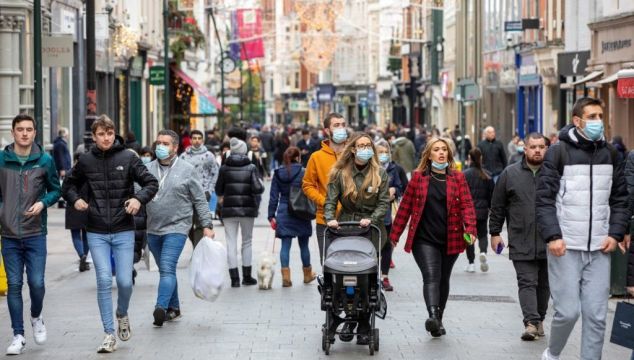Covid-19 vaccine passes for hospitality and other indoor settings could return with the emergence of other variants of the virus or further seasonal mutation of the Omicron variant, an expert has cautioned.
As reported in The Irish Times, at present, Covid vaccine passes are now unnecessary in hospitality settings because the Omicron variant and high levels of vaccination has made Covid “more like flu”.
However, Dr Kevin Kelleher, a former assistant national director with the HSE, has warned that this could change depending on the development of the virus.
“What we’re experiencing now with Omicron is more like flu, and we never used the vaccine pass for that,” Dr Kelleher said.
While those who are immunosuppressed might face some more risks from the hospitality sector, he said similar risks existed before with other transmissible diseases.
Dr Kelleher explained that if a new variant were to emerge that is “more infectious but less disease-orientated”, there would be no need to reintroduce vaccine passes.
“But if it turns out to be more like Alpha [the variant that was dominant in Ireland in the first half of 2021], then yes”.
According to Dr Kelleher, Ireland should “wait and see what comes about come summer and autumn with regards to new variants”.
Current Covid-19 vaccines are more effective than flue vaccines, he added.
'Public health rationale'
Dr Kelleher, who is also a former member of the National Public Health Emergency Team (Nphet), was commenting after Minister for Health Stephen Donnelly defended the decision to remove vaccine pass requirements for hospitality.
When speaking about the decision, Mr Donnelly said the public health rationale around vaccine certs for hospitality had now lapsed.
There had been “secondary benefits” to the certs, such as reassuring the medically vulnerable that they were sitting next to a vaccinated person, Mr Donnelly said, adding that the certs also drove demand for booster shots and primary vaccines.
The vaccine pass “was broadly supported, and it did work, but I am satisfied that, for now anyway, the rationale is there to open up hospitality fully,” he told Newstalk.
Unvaccinated people were putting themselves at risk, he added.
“I think it is on them, if they choose not to get vaccinated they are knowingly putting themselves at significantly higher risk. But ultimately that is a choice for them.”
Mr Donnelly also agreed that the political judgment had been made that it is a choice for these people rather than a public duty to protect them.
“The emergency powers we brought in are very serious, and we’re talking about curtailing peoples’ civil liberties, their economic liberties,” he said.
“They should only be done when there’s a very strong public health rationale.”
Mr Donnelly also indicated that the Government's emergency powers would expire at the end of March unless there is “a clear and present danger that needs to be addressed”.







